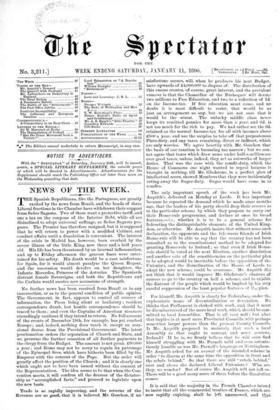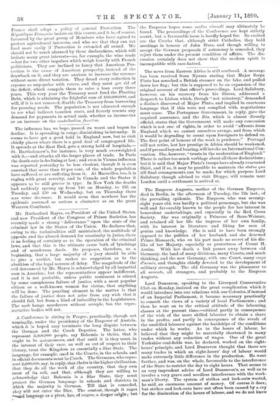It is said that the majority in the French Chamber
intend to insist that all the commercial treaties of France, which are now rapidly expiring, shall - be left =renewed, and that France shall adopt a policy of general Protection. The 1Upublique Franraise insists on this course, and it is, of course, favoured by the great group of Members who have agreed to protect agricultural interests, and who see that they can tax food more easily if Protection is extended all round. We should not be much alarmed by these declarations, which will irritate many great interests—as, for example, the wine trade —but for two other impulses which weigh heavily with French politicians. They are inclined to fancy that American Pro- tection is the cause of American prosperity, instead of the drawback on it, and they are anxious to increase the revenue without more direct taxation. They dread every reduction in expense as unpopular with voters, and they must get rid of the deficit, which compels them to raise a loan every three years. This very year the Treasury must fund the Floating Debt, which is attaining the frightful sum of 260,000,000, and will, if it is not removed, disable the Treasury from borrowing for pressing needs. The population is not educated enough to see what indirect taxation costs, and fiercely resents any demand for payments in actual cash, whether as income-tax or an increase on the contribution fonciZ•re.







































 Previous page
Previous page